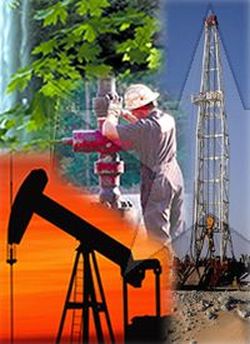Carbon capture technology can help Texas reduce emissions, without disrupting growth
AUSTIN, Texas (Texas Insider Report) — There are several bills in the 88th Texas Legislature addressing the concept that's referred to as "Carbon Capture & Storage," or CCS – but what exactly is Carbon Capture? Or Carbon Storage for that matter?
It's a technology that traps CO2 and stores in underground where it is permanently stored and prevented from being released into the atmosphere.
 In other words, CCS is one way to allow for the use of fossil fuels in a sustainable way.
In other words, CCS is one way to allow for the use of fossil fuels in a sustainable way.
 In other words, CCS is one way to allow for the use of fossil fuels in a sustainable way.
In other words, CCS is one way to allow for the use of fossil fuels in a sustainable way.Texas is a global energy leader, and we have many oil and gas industries or companies that rely on the use of fossil fuels, such as Calpine Energy based in Houston. Innovative companies like Exxon Mobile, Calpine Energy and numurous others are investing in Texas for a cleaner future.
Carbon capture technology provides companies and industries a pathway toward reducing emissions – without completely disrupting their operations in the near future. By capturing and storing carbon emissions, these industries can move toward a more sustainable economy while maintaining their competitiveness.
As CCS initiatives have the potential to spur innovation and drive economic growth – which includes job creation in the Lone Star State – demand for carbon capture technology will increase. This, in turn, creates new opportunities for businesses to develop and commercialize innovative solutions while improving energy efficiency – and conserving resources.
While the Texas Legislature supports the development and deployment of carbon capture and storage initiatives, there are many regulatory hurdles to maneuver or overcome.
In the last legislative session, Texas enacted H.B. 1284, which gave the Texas Railroad Commission jurisdiction over carbon capture and storage wells. It also required the agency to seek "primacy" to administer and enforce the program. Primacy is a Class VI permit under the Environmental Protection Agency’s Underground Injection Control (UIC) Program.
Once the application for primacy is accepted, the Railroad Commission is to regulate the injection of CO2 deep into the ground. To date the EPA has only approved two states for primacy – North Dakota and Wyoming – while Texas, West Virginia, and Arizona (as well as 30 other individual CCS projects,) await EPA primacy permit approval.
There is currently one Class VI permit pending for Texas according to the EPA’s website.
It is vital that the EPA Administrator speed up the agency's Primacy & Permit Approval Processes so the Lone Star State can finally get to work.
























